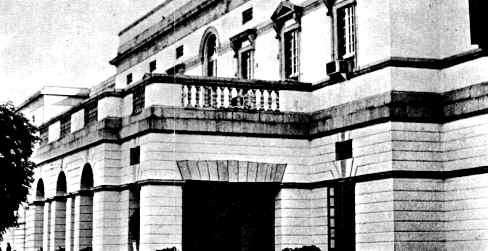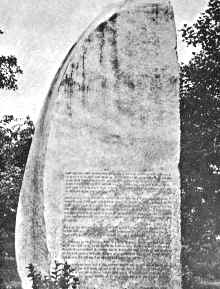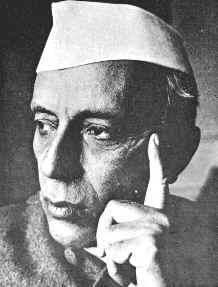|
|
Address: Teen Murti House, New Delhi, 11
Museum hours: 9:30-17; closed on Mondays
Library hours: 9-19; closed on Sundays
Teen Murti House
To the South of Rashtrapati Bhawan in New Delhi stands a large mansion popularly known as Teen Murti House.
It was built in 1929-30 to house the Commander-in-Chief of British Indian Army. In 1948, it became the residence of Jawaharlal Nehru, the first Prime Minister of in dependent India.
For 16 years, it was the hub and and center of the movement for political regeneration of India, and the fountainhead of plans and programs of social and economical development.
In 1964, after the death of Jawaharlal Nehru, it was dedicated to the nation and now houses a memorial museum and a research library.
Some rooms in the main building, reception room, bedroom and the study, have been preserved as they were in Jawaharlal's lifetime. The book-lined corridor, various mementoes and pictures and paintings are vivid reminders of Jawaharlal's multi-faceted personality; the statesman, the book-lover, historian, artist, a man of strong family affections, a warm friend and great humanist.
Carved on marble tables are extract from his "Will and Testament", a moving testimony to his deep love to India and people.
"Jawaharlal Jyoti", which is kept burning night and day, is a symbol of the eternal values, which inspired him and continue to be a beacon light to the people of India on their onward march.
Nehru
Jawaharlal's early life is delineated in a fascinating exhibition of contemporary photographs and documents. There are interesting sidelights on his role in nationalist struggle, on his contribution to the evolution of Modern India and on his constructive role in world affairs. There are also a number of exhibitions in the museum bearing on the struggle for India's freedom, its various facets and its great leaders.
Nehru Museum, thus gives a glimpse of the life and work of the man, who was not only one of the greatest leaders of Indian Nationalism and one of the architects of independent India, but also an ardent champion of peace in a world convulsed with fear, hatred and violence.
Carved in Granite
One of the most popular spots in the museum is a huge granite rock, on which are carved extracts from Jawaharlal Nehru's inspiring speech in the historic session of Constituent Assembly on the midnight of 14th August, 1947, when India attained independence:
"The Service of India means the service of the millions who suffer. It means the ending of poverty and ignorance and disease and inequality of opportunity. The ambition of the greatest man of our generation has been to wipe every tear from every eye. That may be beyond us, but so long as there are tears and suffering, so long our work will not be over..."
A Research Library on Modern Indian History
Library has been developed as a research library on modern Indian history. Its resources cover the history of India from Raja Ram Mohun Roy to the present, with special emphasis on nationalist movement and life and work of Jawaharlal Nehru.
Its resources include printed materials, books, pamphlets, newspapers, periodicals and other publications, unpublished records on institutions and private correspondence of individuals, photographs, films and oral history recording.
Library is open to scholars engaged in study and research.



|
|



